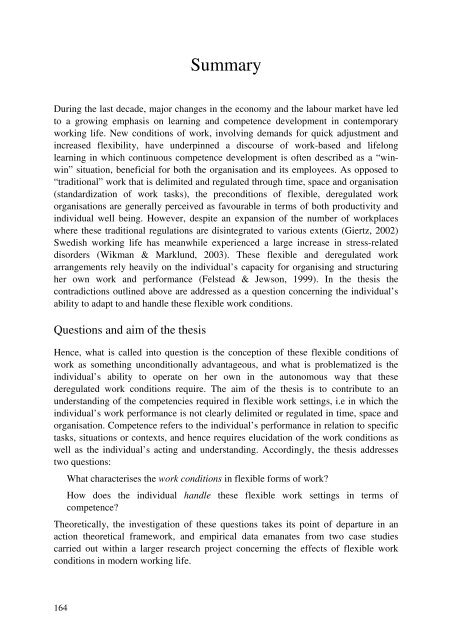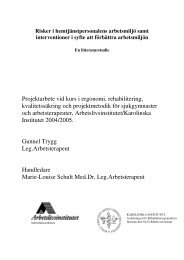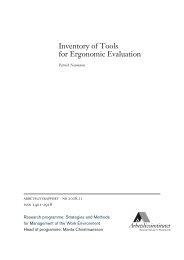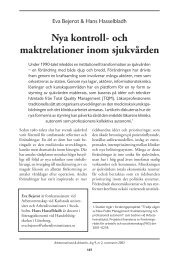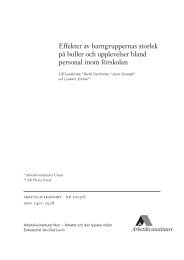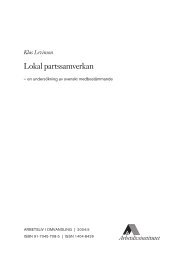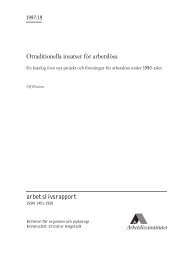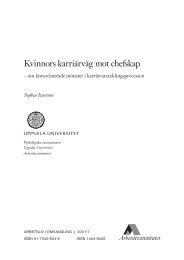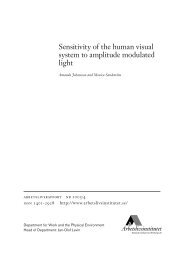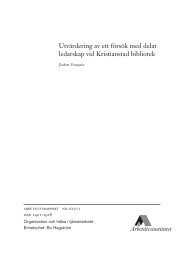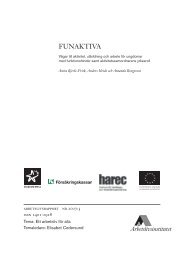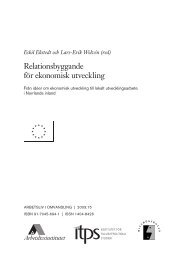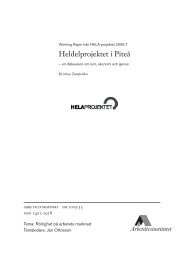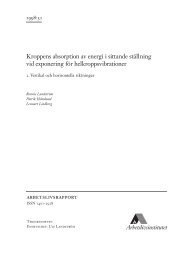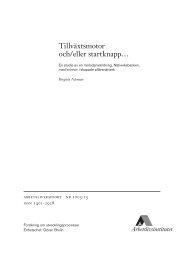Det flexibla arbetets villkor â om ... - Lunds universitet
Det flexibla arbetets villkor â om ... - Lunds universitet
Det flexibla arbetets villkor â om ... - Lunds universitet
- No tags were found...
Create successful ePaper yourself
Turn your PDF publications into a flip-book with our unique Google optimized e-Paper software.
SummaryDuring the last decade, major changes in the econ<strong>om</strong>y and the labour market have ledto a growing emphasis on learning and c<strong>om</strong>petence development in contemporaryworking life. New conditions of work, involving demands for quick adjustment andincreased flexibility, have underpinned a discourse of work-based and lifelonglearning in which continuous c<strong>om</strong>petence development is often described as a “winwin”situation, beneficial for both the organisation and its employees. As opposed to“traditional” work that is delimited and regulated through time, space and organisation(standardization of work tasks), the preconditions of flexible, deregulated workorganisations are generally perceived as favourable in terms of both productivity andindividual well being. However, despite an expansion of the number of workplaceswhere these traditional regulations are disintegrated to various extents (Giertz, 2002)Swedish working life has meanwhile experienced a large increase in stress-relateddisorders (Wikman & Marklund, 2003). These flexible and deregulated workarrangements rely heavily on the individual’s capacity for organising and structuringher own work and performance (Felstead & Jewson, 1999). In the thesis thecontradictions outlined above are addressed as a question concerning the individual’sability to adapt to and handle these flexible work conditions.Questions and aim of the thesisHence, what is called into question is the conception of these flexible conditions ofwork as s<strong>om</strong>ething unconditionally advantageous, and what is problematized is theindividual’s ability to operate on her own in the auton<strong>om</strong>ous way that thesederegulated work conditions require. The aim of the thesis is to contribute to anunderstanding of the c<strong>om</strong>petencies required in flexible work settings, i.e in which theindividual’s work performance is not clearly delimited or regulated in time, space andorganisation. C<strong>om</strong>petence refers to the individual’s performance in relation to specifictasks, situations or contexts, and hence requires elucidation of the work conditions aswell as the individual’s acting and understanding. Accordingly, the thesis addressestwo questions:What characterises the work conditions in flexible forms of work?How does the individual handle these flexible work settings in terms ofc<strong>om</strong>petence?Theoretically, the investigation of these questions takes its point of departure in anaction theoretical framework, and empirical data emanates fr<strong>om</strong> two case studiescarried out within a larger research project concerning the effects of flexible workconditions in modern working life.164


